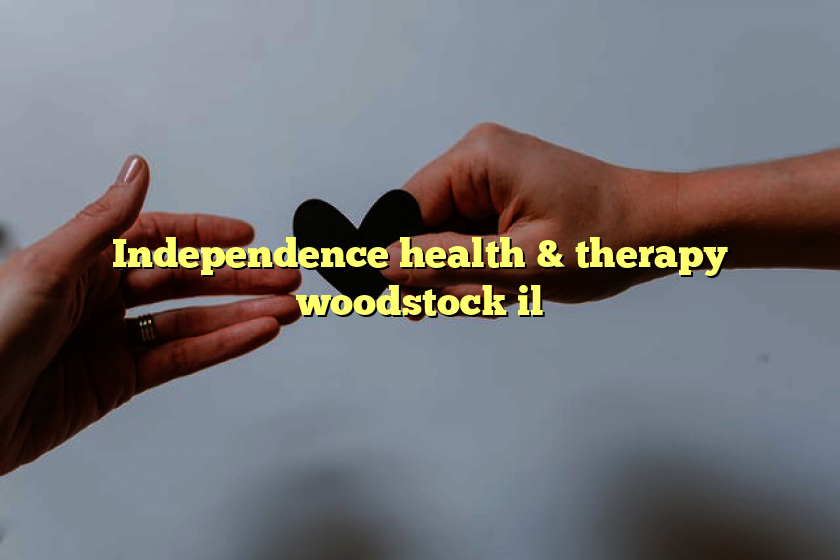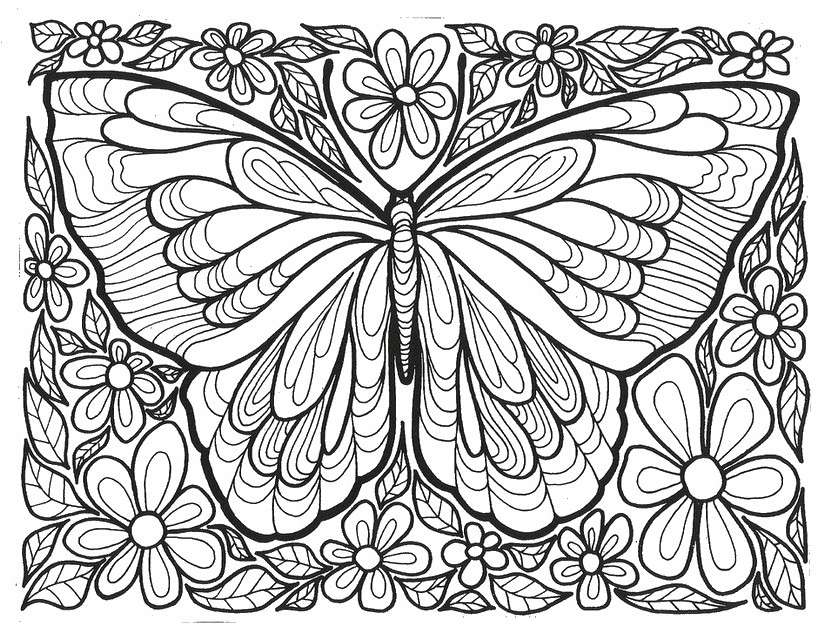Starting therapy for depression is really crucial for so many people, because the mental health condition goes far beyond your typical bouts of sadness. Depression can swallow your life with feelings of hopelessness, pessimism, and irritability. It’s totally normal to feel low at times—we’ve all struggled to get out of bed at some point—but it becomes debilitating when these feelings don’t seem to have an end in sight. That’s why finding the right treatment, which often includes therapy, can be life-changing.
You may find some comfort in knowing that you’re not alone if you are feeling this way. Depression is relatively common, affecting nearly 8% of adults in the U.S., according to 2019 figures from the National Institute of Mental Health. “Depression is a complex disease, and like almost all chronic diseases, there are multiple causes,” Anne H. Gilbert, M.D., a clinical psychiatrist at Indiana University Health, tells SELF.
But discovering the root cause of your symptoms will ultimately help pave a path for brighter days, and a mental health expert can help you do that. If you’ve been considering therapy for depression, here’s your sign to go for it. Working with a therapist can help you bring buried feelings to the surface, so you can confront them, begin to understand them, and ultimately address them in a safe space.
Ahead, SELF asked experts to explain the ins and outs of getting diagnosed with depression, and what you need to know about therapy before you get started. (Keep in mind that some of the following information may be triggering if you’re seriously struggling. If you feel like you need immediate help, you can contact your local hospital or the confidential National Suicide Prevention Hotline.)
What are the symptoms of depression?
Depression can be an insidious condition that looks and feels different for everybody. It may present as feelings of hopelessness for one person and irritability or overwhelming fatigue for someone else. If you experience at least five of the following signs of depression for most of the day, nearly every day, for at least two weeks, your physician or therapist might diagnose you with some form of depression:
- Feeling hopeless, pessimistic, sad, or empty
- Feeling worthless or guilty
- Lost interest in favorite hobbies or activities
- Eating more or less than you typically do
- Unexplained weight fluctuations
- Sleeping more or less than you usually do
- Fatigue or loss of energy
- Irritability
- Trouble concentrating
- Thoughts of suicide
- Unexplained physical aches, pains, or digestive issues
How is depression diagnosed?
Getting an official depression diagnosis happens at different times for different people. For some, a diagnosis comes when they bring up symptoms with their primary care doctor, who then refers them to a therapist. For others, a depression diagnosis isn’t discovered until therapy has already started to unpack unresolved feelings. There’s no wrong time to receive a diagnosis, but getting one can help shed a light on what you’ve been experiencing.
Depression is a serious mood disorder, with an estimated 17 million American adults having at least one major depressive episode in the past year. It can affect how you think, feel, interact with people, and handle daily life. It can cause feelings of sadness and a loss of interest or pleasure in things you once enjoyed. Anyone can be affected by depression, and it can happen at any age, but it often begins in adulthood.
The good news is, depression is highly treatable, with reports of 80% to 90% of people eventually responding well to treatment. One of the reasons depression responds so well to treatment is that improvements can be found in medications, psychotherapy, or the combination of both. Finding the right psychotherapist who can help you understand and work through the underlying causes of depression as well as develop coping strategies to deal with the symptoms is often the first step to feeling better.
If you or a loved one are struggling with depression, contact the Substance Abuse and Mental Health Services Administration (SAMHSA) National Helpline at 1-800-662-4357 for information on support and treatment facilities in your area.
For more mental health resources, see our National Helpline Database.
Types of Depression
Diagnosing depression requires an evaluation process involving a physician or mental health professional. In general, to be diagnosed with depression, symptoms need to be present for at least two weeks.
There are several types of depressive disorders as defined by the DSM-5, including, but not limited to, major depressive disorder and persistent depressive disorder. There are also specifiers for major depressive disorder such as major depressive order with a seasonal pattern (previously known as seasonal affective disorder) or major depression with peripartum onset (often known as postpartum depression).
Treating Depression
Depression is often treated with medications called antidepressants, therapy, or a combination of the two. There are several types of antidepressant medications available. It may take some time to find the right one for you, so working closely with your doctor is critical during this time. Even with the right medications, it often takes some time to notice an improvement in how you feel.
Treating depression with therapy or psychotherapy has proven helpful in both short-term and long-term cases of depression. Like medications, there are various forms of therapy and experts to choose from. Some of the more common evidence-based approaches include cognitive-behavioral therapy (CBT), interpersonal therapy (IPT), psychodynamic psychotherapy, and problem-solving therapy.
Counseling vs. Psychotherapy
Treating depression with “talk therapy” is often the first step with mild to moderate depression. Many experts will go this route prior to trying medication. If depression is more severe, medication will often be required and a combination of therapy and medication may happen at the same time. Before moving forward, it’s important to understand the differences between counseling and psychotherapy.
The terms “psychotherapy” and “counseling” are often used interchangeably. While the two are very similar, it’s important to note that sometimes, psychotherapy with a licensed psychologist or psychiatrist (MD) is considered more of a long-term approach that focuses on depression and deeper issues that are significantly impacting your life. Counseling, on the other hand, is seen more as a short-term therapy that may focus more on mild to moderate symptoms and outward functioning and behavior.
Counseling for Depression
The length and severity of the symptoms and episodes of depression often determine the type of therapy. If you’ve been depressed for a length of time and the symptoms are severe, working with a psychiatrist or psychologist (PsyD) may be necessary, since they deal more with issues from the past that may be deeply rooted in your present feelings. But if the symptoms of depression are more recent or not as severe, working with a therapist in a counseling relationship may be helpful.
During counseling, the therapist will use “talk therapy” to help you understand and work through the issues that are impacting your life in negative ways. Their role is to listen, provide feedback, and work with you to develop strategies to cope. They will also evaluate your progress and adjust the sessions accordingly. You may be asked to do homework that extends the learning from the counseling sessions. Often, this is in the form of tracking moods and feelings.
Counseling for depression focuses more on present thoughts, feelings, and behaviors and how these things are affecting your life currently. That’s why CBT has been a useful model to use in counseling sessions.
With CBT, the therapist can help you change negative thinking that may be making the symptoms of depression worse. The focus is goal-oriented, with you, the patient, taking an active role.
Since CBT is generally considered short-term therapy, it’s often a top choice for therapists when working with mild to moderate cases of depression that may not need long-term, in-depth psychotherapy. Evidence suggests that CBT works well in counseling for depression. It’s also proven to reduce relapse or recurrence rates of depression once counseling has ceased.
Interpersonal therapy (IPT) is another brief or short-term method used in counseling for depression that focuses on interpersonal conflict and poor social support, which can lead to feelings of depression. This type of therapy can help you communicate better and address issues that make the symptoms of depression worse. Evidence suggests that IPT is effective in acute treatment of depression, and it may help prevent new depressive disorders.
Other Treatment Options
There are also some other treatment modalities that may be worth considering. For more severe and refractory cases of depression, electroconvulsive therapy (ECT) may be useful. There are also complementary and alternative approaches that might provide additional benefits.
How to Find a Counselor
Finding the right counselor, psychologist, or mental health expert to work with may take some time. When it comes to counseling for depression, the relationship between patient and counselor is key to the success of the therapy. It’s important to be patient and open to the process. You may find that you need to see a few people before finding someone you can develop the best working alliance with.
If you’re not sure where to look, a good place to start is with your doctor. You can also contact any larger mental health facilities in your area. While they may not offer the services you need, they will likely know of counselors close to where you live that provide therapy for depression.
Another place to find referrals online is through one of the professional organizations such as the American Psychological Association or the Anxiety and Depression Association of America. Many of them have online directories that allow you to search for mental health experts in your area.
Finally, spend some time researching the experts in your area. Go online and read their bios. Send an email asking for more information about their preferred forms of treatment and how they interact with clients. Many therapists offer a free intro session to see if it is a good fit. Find out if they offer a free trial session and give it a try.
One other form of counseling to consider, especially for more mild forms of depression, is online therapy. The popularity of online therapy has increased in the last few years and has accelerated considerably in the current pandemic.
Online resources and apps such as Talkspace offer support via a desktop or mobile app with a variety of services including individual sessions and other mental health resources that can help you work through issues related to depression, and come up with and practice coping strategies.
A Word From Verywell
Living with depression can feel overwhelming at times. Working with a mental health expert in a therapeutic relationship provides you with a safe environment to identify the thoughts, feelings, and patterns of behavior that are contributing to your symptoms. Counseling can also help you learn new coping skills and techniques to better manage the symptoms.
Short-term counseling, which typically lasts less than six months, is often appropriate for mild to moderate depression. If you feel like you could benefit from counseling for depression, talk with your doctor about getting a referral. Finding someone you trust and feel comfortable opening up to is critical in the success of the counseling process.



